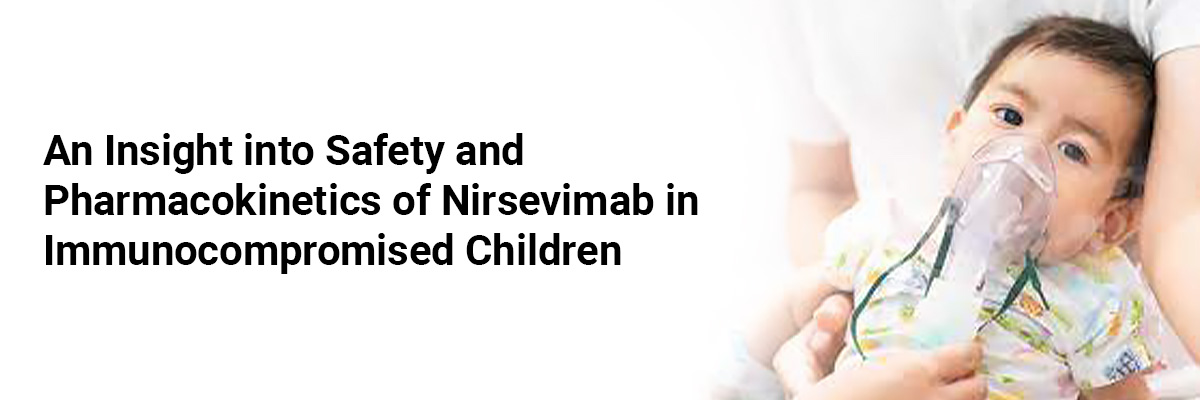
An Insight into Safety and Pharmacokinetics of Nirsevimab in Immunocompromised Children
Children with impaired immune systems may be more susceptible to severe respiratory syncytial virus (RSV) lower respiratory tract infections (LRTIs), which could result in extended hospital stays, critical care, and even death. The current open-label phase II MUSIC trial examined the safety and pharmacokinetics of nirsevimab, an extended half-life monoclonal antibody against RSV, in immunocompromised children aged ≤24 months.
All the participants were adminsitered a single intramuscular injection of nirsevimab (for the first RSV season: 50 mg if under 5 kg / 100 mg if 5 kg or more; for the second season: 200 mg). Safety, antidrug antibodies, and pharmacokinetics were measured up to day 361.
The results demonstrated that:
- A total of 100 participants were enrolled with one or more immunocompromising conditions: primary immunodeficiency (33 participants), previous transplantation (16 participants), HIV infection (8 participants), high-dose systemic corticosteroid treatment (29 participants), immunosuppressive chemotherapy (20 participants), or other immunosuppressive therapies (15 participants).
- Although eight treatment-related adverse events occurred in six children, none of them were life-threatening.
- Three deaths were reported, however, all unrelated to the treatment.
- Eleven children developed antidrug antibodies, but these had minimal effects on pharmacokinetics and did not impact safety.
- Nirsevimab serum concentrations on day 151 were comparable to those that prevent medically attended RSV LRTI in healthy infants.
- Fourteen children showed augmented clearance of nirsevimab.
- No protocol-defined medically attended RSV LRTIs were observed through day 151.
Thus, it can be concluded that nirsevimab was well tolerated and exhibited no safety issues in immunocompromised children 24 months of age or younger; serum concentrations suggested potential therapeutic effect. Some children with increased nirsevimab clearance had conditions that may have been related to protein loss, however, the effect on efficacy remains ambiguous.
Source: Domachowske J, et al. Safety and Pharmacokinetics of Nirsevimab in Immunocompromised Children. Pediatrics. 2024;154 (4): e2024066508. https://doi.org/10.1542/peds.2024-066508













Please login to comment on this article